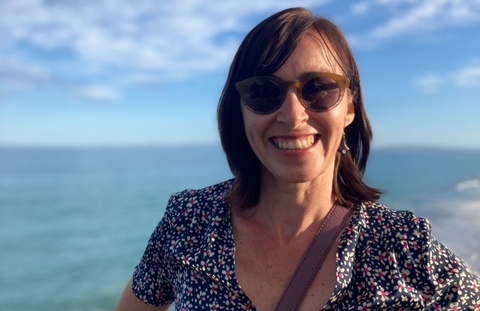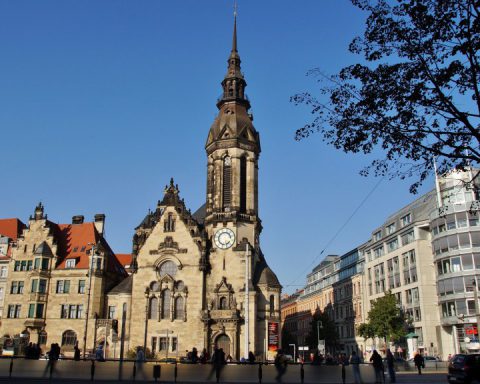In Bus Number 52, a deeply personal and heartwarming narrative unfolds across continents and years. The story begins in 2013 Bangalore, where a young professional loses her first beloved smartphone—a Sony she bought with her own salary. Fast forward to 2025 Munich, she’s a mother navigating German classes, city commutes, and nostalgic soundtracks through her Marshall headphones. When she accidentally leaves her iPhone on a city bus, what follows is a dramatic chase across Munich—with strangers stepping in like angels. A painter, a kind van driver, an African commuter, police officers, and a bus driver all help reunite her with her phone. But the real treasure is not the recovered device—it’s the reaffirmation of human kindness, across cultures and languages.
Bus Number 52: A Story of Phones, Cities, and Strangers
Part One: A Sony Dream (Bangalore, 2013)
It was the year 2013—an age caught between the charm of button phones and the seduction of smartphones. The world was shifting. WhatsApp was on the rise, Facebook was the digital diary, and people were learning to express feelings through tiny yellow smiley faces. That was the world I stepped into, wide-eyed, fresh out of college, and I was just hired at HP.
Back then, I still used a flip Samsung press-button phone. Reliable, yes, but my heart, beat for Sony. The stories about Sony’s sound quality, the rumours of its music system being the best, had turned into a quiet obsession. Maybe it was because I am a die-hard A.R. Rahman fan. I didn’t just listen to music—I lived in it. And I wanted a phone that could do justice to that world.
I dedicated my first month salary to buy some gifts for my parents. That was the plan, always had been. But with the second month’s pay, I decided to reward myself. And there it was—my dream phone—waiting for me at ‘Sangeetha Mobile Store’ in Rajajinagar 6th Block, Bangalore, India.
June 28th (Friday), 2013. My salary was credited.
June 29th, (Saturday) I held my first smartphone.
The joy… Oh, that joy! Unless you’ve ever worked hard, dreamed small, and finally held that dream in your hands, you won’t know what it feels like. I couldn’t stop touching it. The glossy surface, the smooth sensor, and so many apps I had never seen in my life. Most of them made no sense to me. But I only needed three things: Music, WhatsApp, and Facebook. That was my holy trinity.
And the smileys! Sony’s yellow emoji icons weren’t just graphics—they were feelings. I would send messages just to use them. “Good morning 😊” to friends. “How are you? 😃” for no reason. The joy was spontaneous, pure, childlike.
I was waiting—desperately—for Monday. I couldn’t wait to show it off to my team at HP.
So that Monday, I walked in with my brand-new Sony smartphone, glowing. “Look!” I said, almost shouting, and they all circled around me like I had brought a piece of the future. We clicked selfies—sitting, standing, sleeping poses. Laughing. Giddy. The phone felt like a trophy.
But happiness, sometimes is fragile.
Six days later, on a quiet weekend, my mother and I went shopping. We got an auto back home. Tired but content. We got down near our home, bags in hand.
And the auto drove away.
With it—my phone.
I reached into my handbag, froze, and realized what had happened. My heart sank. I chased the road with my eyes. But there was no trace of an auto. I haven’t noted the auto number plate, no IMEI, nothing
Twenty-eight thousand rupees. A week of joy. Gone in a blink.
I didn’t go to the police. I didn’t know what to say, how to trace it. I just… mourned. Quietly. A loss not big enough for the world to care about, but deep enough for me to remember it even now.
It wasn’t just a phone.
It was a symbol. Of music, of independence, of joy, of youth.
Part Two: Marshall & Morning Air (Munich, 2025)
Munich, 2025.
Six years in Deutschland.
You’d think that’s enough time for the foreign to become familiar—for the strange syllables of German to finally sit comfortably on the tongue. But no. The language, with its endless compound words and back-of-the-throat sounds, still presses a dull ache against my confidence every time I try to speak it aloud.
But I’ve lived with this ache long enough.
This summer, something shifted. Maybe it was the monotony of days spent sprawled on the sofa, watching Gossip Girl on Netflix. As much as Blair Waldorf’s schemes and Manhattan drama entertained me, something in me whispered, This isn’t what you came for.
So, I took the leap. Enrolled in a professional German course.
Week One was a whirlwind—like I’d started a full-time job with no training. Between the course, managing a toddler, tending to a house, and cooking meals that could please both an Indian palate and a German appetite, I felt like I was carrying the weight of three people. My husband helped, of course. But as any mother knows, there are things only you can hold together.
Week Two came with a little rhythm.
Still hard. Still chaotic. But not new anymore.
Week Three—I stopped resisting. I leaned into it. Routine was now my companion. And the commute became a quiet blessing.
Every morning, I’d catch Bus Number 180 from the stop near my home, heading toward Am Hart U-Bahn. From there, I’d board the U2 line, riding eleven long stops toward Messestadt Ost. At Kolumbusplatz, I’d rise with the crowd, shuffle up the stairs, and wait for Bus 52, which would take me two stops to Winterstraße, where my centre awaited.
One hour and ten minutes.
Twice a day.
In a city that was home, and yet not quite.
Somewhere in Week Three, my Apple AirPods began to bore me. Too clinical, too impersonal. I wanted warmth, bass, presence. I wanted music to feel like music again. So, I ordered a Marshall Bluetooth headphones—sleek, matte black, retro with modern soul. When they arrived in just three days, I put them on and pressed play.
A.R. Rahman.
That was it. The journey was transformed. Now, Rahman’s melodies filled the train tunnels and the bus aisles, wrapping me in a cocoon of sound that belonged to no country, but always felt like home. “Roja,” “Dil Se,” “Yeh Jo Des Hai Tera.” I smiled behind my mask. The headphones didn’t just play music—they gave me a piece of myself.
Week Four.
I was still late.
Every. Single. Day.
I’d enter the classroom after everyone had settled in, heads already bent over notebooks or tablets, the whiteboard scrawled with German grammar that looked like math. My steps were quiet, almost apologetic. But what I hated most? The window seats were always taken.
It was summer in Munich—the kind of soft, golden summer that you could actually feel in your bones. The breeze was gentle; the light filtered through leaves like a painting. I longed to sit by that window. To breathe in a little nature, to feel grounded again in a world that still felt like someone else’s.
But the seats were always full.
So I sat in the middle rows. Practicing “Perfekt und Präteritum” while stealing glances toward the window. Learning a language, I realized, is not just about words. It’s about identity. Dignity. The ability to belong.
And even now, sometimes, the ache is still there—when I hesitate at a supermarket, or fumble through a sentence at the doctor’s office. But then I put on my Marshall headphones, catch the 180, and listen to Rahman whisper reminders from another world:
“You belong. You’re moving. Keep going.”
Six years in Munich.
Still learning. Still late.
Still dreaming beside a bus window.
And somehow, that’s enough.
The Last Seat
This morning began like no other.
The clock blinked 6:00 AM and I was already awake refreshed, upright, and slightly shocked. I had slept like a demon, tangled in dreams I couldn’t recall, yet rose with an unusual energy humming in my chest.
For once, the day didn’t drag me—I led it.
Shower.
Juice blended.
Bread toasted.
Hair brushed.
Shoes polished.
Opened the puja room door, said ’Hello’ to Mr. Ganapathi before I stepped out.
By 7:30, I was out of the door—so early today, even the sun seemed surprised.
Bus 180, my faithful chariot, arrived right on cue. Then came the U2 Ubahn Line, diving into the belly of the city then I exited at Kolumbusplatz, checked the time: 8:13 AM.
I blinked. Could this be real? Me? Early?
A small thrill passed through me. I wasn’t just surviving the day—I was dancing with it.
After four minutes, Bus 52 arrived—a double bus, that typical German marvel, where the driver sits in the front half, and the back half sways along like a well-trained pet on a leash.
As always, I chose the last seat in the back compartment. It was a habit now—practical and peaceful. Two stops. Just eight minutes. My silent bubble of time before the demands of the day came rushing in.
And in those eight minutes, as the city moved past the windows in a blur of red rooftops and soft sunlight, my mind bloomed with noise.
Million thoughts, all jostling for attention.
“Did I lock the kitchen window?”
“What will I make for dinner?”
“Do I need to refill the juice?”
“Ah, the wallet.”
Almost casually, I reached into my backpack and fished out my wallet. My phone was resting snugly in my jeans’ back pocket. My fingers curled around my juice bottle.
The bus slowed. My stop arrived. The doors hissed open. I stood, music playing in my ears, the bass a little off today—but I didn’t think much of it.
I got down. The doors folded shut behind me.
The bus rolled away.
And then, it hit me.
The sound.
The faint crackle in my headphones. A fading hum, like a thread unravelling.
I reached to adjust the volume.
And stopped cold.
Nothing. No music. No weight.
I reached behind. My pocket was empty. My breath caught.
The headphones were still in my ears. But my phone—My phone. Gone.
I turned. The bus just in front of my own eyes moving away, disappearing into the Munich morning.
My world—organized, precise, well-planned just moments ago—
shattered.
I stood there frozen, headphones still in, music gone, holding a juice bottle, wallet in one hand, and a growing storm inside me.
Lost and Chasing
In a fraction of a moment, two things struck me—sharp, fast, and brutal.
First, a déjà vu.
My Sony phone, lost in an auto years ago in Bangalore.
Gone in a blink, like a sandcastle pulled away by the tide.
Second—the cost.
Not just in rupees. Not just the lakhs I’d have to spend again.
But the photos, the memories, the comfort, the music, the world inside it.
No.
Not again.
I dropped all logic and ran.
My legs moved before my brain could catch up.
The bus—my bus—was gliding ahead like a dream I was about to forget.
I waved my arms.
Cars zoomed past. I shouted.
A Benz… then a BMW… both blurred by like I was invisible.
Frustration twisted in my chest.
I turned my head like I was flipping pages in panic—front, back, side, left, right.
Then—miracle.
A white van slowed down beside me.
A guy leaned his head out. His eyes asked the question before his mouth could.
“I lost my phone on that bus,” I blurted. “Please, can you help me catch it?”
He nodded once. No hesitation.
“Get in.”
The door clicked open. I jumped in without asking a single thing more.
We followed the bus. I saw its rear end bobbing through the road like it was teasing me—so close, yet so far. My breath caught in my throat.
But just then—traffic.
Of course.
The van slowed.
The bus? Kept moving.
My hands clenched the dashboard. I was too nervous to speak.
And as we inched through the jam, I saw a familiar face through the crowd.
My classmate, standing near the turnoff to our language school, staring at me.
“Where are you going? Class is this way!”
I could barely manage, “I lost my phone! Chasing the bus!”
She looked at me as if I’d lost my mind.
And maybe, in that moment, I had.
We reached the third stop.
Finally.
I hadn’t even asked the van driver where he was headed.
Didn’t know his name.
Didn’t thank him properly—just a rushed “Vielen Dank!” as I leapt out like a storm.
The bus was there. Parked. Doors open.
I ran to the back, climbed inside, heart hammering.
Last seat.
My seat.
I dropped my bag, scanned the floor, the cracks, under the seat.
Nothing. Nil. Blank.
My heart broke, audibly.
I could almost hear it in the sudden silence.
A guy was sitting on the front-right seat now, facing the aisle.
I asked him, breathless, “Did you see a phone here? It was here… I left it…”
He blinked. Shook his head.
“No, sorry. I didn’t see anything.”
And that was it.
I got down.
Stood on the pavement like someone had pulled the sky down on me.
The day that began with such promise—planned, polished, powerful—
had fallen apart in just eight minutes.
My phone. My music. My rhythm.
Gone. Again.
Only the sound of my own heartbeat echoed now—loud, frantic, defeated.
Found in Translation
My heart was still thumping from the disappointment, echoing in my ears louder than the city traffic.
But I wasn’t ready to give up. Not yet.
On my way back, near the curb, I saw a man standing by his car, adjusting something on the passenger seat. Hope flickered in my chest like a stubborn matchstick. I rushed to him and, with my broken German, tried to explain.
“Ich… habe mein Handy verloren… im Bus… können Sie bitte anrufen?”
He hesitated, confused at first—but there was kindness in his eyes. He took his phone out, nodded slightly, and dialed my number.
Once.
No answer.
Twice.
Still silence.
He frowned, then opened Google and searched for MVG customer care—the Munich transport board. We found a number. He called, but they only offered a procedure: “Fill a Formular at the nearest U-Bahn station.”
I nodded like I understood, even though my hope had already started crumbling again.
Then I looked at him, pleading quietly, “Kannst du… noch einmal probieren?”
Can you try again, just one more time?
He dialled.
The line rang.
And then—someone answered.
My heart stopped.
He spoke in fast German. I caught only fragments. “Sendlinger Tor… warten… abholen…”
The man on the other side was telling him he’d hand over the phone at Sendlinger Tor. No English. All German. But the message was clear.
“Sendlinger Tor?” I repeated, wide-eyed.
I turned to the man standing beside me. “Can you… can you please drive me there?”
He looked at me, thoughtful. And then, simply said:
“Ja. Komm. Steig ein.”
Yes. Come on. Get in.
He pulled up Google Maps. It said 22 minutes.
Twenty-two!
I couldn’t believe he was doing this. A stranger, with a kind face, now driving me across Munich just so I could reach my lost phone.
During the drive, tension began to melt. We talked.
I told him about my German course—how I’d just joined a month ago. I told him I was from Am Hart.
He asked about my husband.
I apologized for my bad German.
He waved it off, saying his wife also spoke “schlechter Deutsch” and that language doesn’t matter when intentions are good.
He is a painter by profession. Some words I missed, but the warmth came through. There were pauses, silences. Not awkward ones, just peaceful breaks in a conversation between two people from two worlds.
And then, the red lights of Sendlinger Tor appeared. Traffic slowed.
He turned to me and said, “Get out here. Go. Schnell. Maybe you’ll catch him.”
I wanted to hug him. Instead, I just whispered, “Danke, danke schön…” and sprinted.
At the bus stand, my breath caught. I looked around—
No idea who to approach.
I saw a man sitting alone. African, maybe in his 30s. I hesitated. Then gathered the last ounce of courage I had left.
“Do you speak English?” I asked.
He said. “Yes.”
Relief.
I told him everything. The call, the message, the meeting point. “Can you try calling my number again?”
He nodded and dialled twice.
No answer.
Oh no… was this a scam? A prank?
Then I saw them—three policemen nearby.
I walked over and repeated the same story for the fourth time that day.
To my surprise, no frustration in their faces. One of them simply nodded and said, “We’ll try.”
He pulled out his phone and called. The man answered again.
This time, the police spoke. It was approximately 1 minute of phone call. The policeman addressed that, A girl is waiting here for her lost phone, she is wearing a green T shirt with Jeans. A few more details he spoke, I barely understood that.
Then he turned to me and said,
“The person is waiting at the opposite side of the bus station, behind the bank. But, you have one minute. He’ll leave. Go!”
I said thank you.
I ran.
My feet were flying. My heart was racing faster than it had all day.
I reached the other bus stop. Eyes scanning.
A bus driver stepped forward. The same Bus number 52, written “TierPark”.
He looked at me, recognition lighting in his eyes.
“Do you have my phone?” I blurted. “iPhone? Blue color Handy? Please?”
He nodded.
My lungs exhaled a breath I’d been holding for what felt like hours.
He said, in broken English, “Police called. That’s why I wait. Normally not allowed to give phone like this.”
He took me to the driver seat, pulled out a paper.
“Unlock. Type PIN.”
I did.
“Sign here.”
My hands were shivering. But I wrote my number and signed.
Then, like in a movie, he placed the phone in my hands.
My phone.
It felt unreal. I wanted to cry. I wanted to laugh. I wanted to hug the world.
That moment—standing in the middle of Munich, phone in hand, hair a mess, breath caught, sweat on my back.
A Journey Measured in Kindness
“Does this go to Tierpark?” I asked the bus driver, still breathless from the chase.
He smiled and nodded.
“Yes, you wanted to go there, right?”
“Winterstraße,” I confirmed, half-laughing. He nodded again. “Take a seat. Relax.”
And I did. For the first time that morning, I let myself breathe.
As the bus took a slow left turn around the curve, the sunlight filtered in through the window—and in that golden slice of morning, I saw a familiar face.
The African man. The one from the bus stop.
He was still there. And he saw me too.
He waved, eyes lighting up. A silent question with curiosity in his smile:
Did you find it? He waved a phone from opposite.
I held up the phone to the window, grinning.
He gave a big thumbs-up. That smile… peaceful, real, proud.
It made something in my chest tighten. In the best way.
As the bus rolled on, I dialled the number of the painter—the man who had driven me across the city, just on faith.
He answered immediately.
I said just three words:
“Ich habe mein Handy gefunden”
A silence of joy followed on the line. He laughed.
“I’m happy… really happy.”
I offered my thanks again and again. No words felt big enough.
And then I leaned back.
It hit me.
This was the same bus. Bus 52 to Tierpark.
The one where I had lost the phone.
Now it was the same one that returned it to me.
It all clicked.
When I had rushed out earlier in a panic, someone must have boarded after me, seen the phone, and handed it to the driver.
And when I had caught up with the same bus the second time—desperate, out of breath—I never asked the driver.
If at all I would have reached and asked the driver then, I would have got the phone. In nervousness, I got down from the bus.
I glanced at the digital display inside the bus.
9:23 AM.
It had only been one hour.
But to me, it felt like an entire lifetime had passed.
My juice bottle was still half-full. My wallet was still clutched in my other hand. Marshall headphone was still lying around my neck. But my panic, my frustration, my helplessness—gone.
I took a moment to pack everything into my bag. This time, carefully.
I realized something now.
The whole happiness is not about the phone now, but it’s about the people.
Did I really meet those people today? The wholesomeness of good people?
But the happiness wasn’t just about the phone. Not really.
It was about them.
- The first van driver, who didn’t even ask where I needed to go—he just followed the bus, stop to stop.
- The painter, who drove me across the city for 22 minutes, making me laugh despite my broken German and frayed nerves.
- The African man, who used his phone to help, without hesitation to me at all.
- The policemen, who listened, dialled, tracked, and urged me to run in the right direction.
- The bus driver, who bent protocol and handed me back my phone
It was a chain of humanity, linked together by hope and help.
All strangers.
All human.
All carrying a piece of kindness in a moment I needed it most.
And for the first time in a long while, Munich didn’t feel foreign.
It felt like home.
Later, back home, I sat down. The day had barely begun.
I opened WhatsApp to tell my husband everything.
Two messages waited.
From the painter.
“I’m really happy you got your phone.”
“You are a cute and beautiful woman.”

I stared at the message.
Smiled.
Not because someone called me cute.
But because it reminded me that a day doesn’t need to be extraordinary to be unforgettable.
It just needs to be full of real people doing good things for no reason at all.
One hour.
One bus ride.
One phone.
And a lifetime worth of faith in humanity—restored.
By Bhagya Duraiswamy
Bhagya Duraiswamy was born in Bangalore, India. She currently lives with family in Munich, Germany. She is an IT professional and passionate about storytelling that captures the emotional complexity of everyday life. When not writing, she enjoys music, city walks, and reading books. You can find her full “Bus Number 52” e-book on Amazon.









